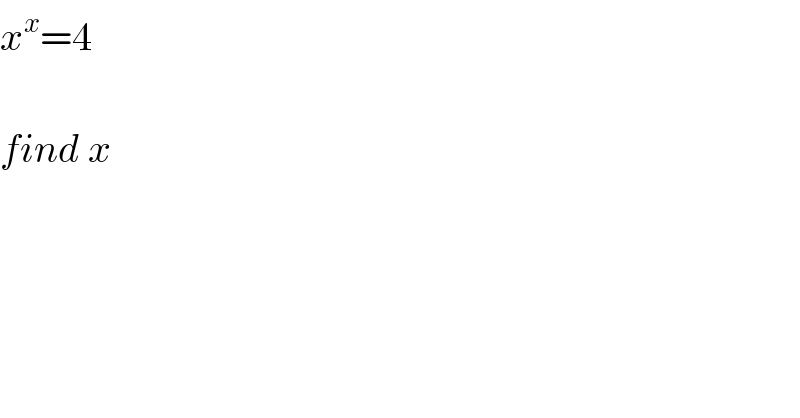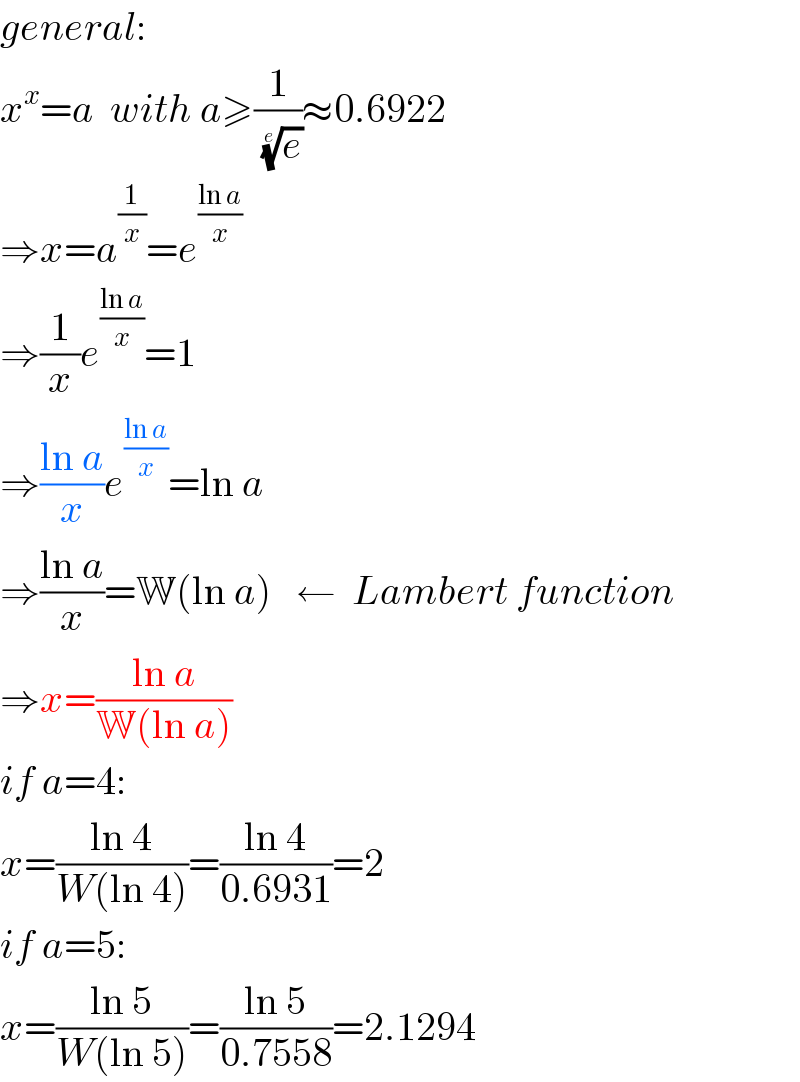
Question and Answers Forum
Question Number 56214 by necx1 last updated on 12/Mar/19

Answered by tanmay.chaudhury50@gmail.com last updated on 12/Mar/19

Commented by tanmay.chaudhury50@gmail.com last updated on 12/Mar/19

Commented by necx1 last updated on 12/Mar/19

Commented by necx1 last updated on 12/Mar/19

Answered by mr W last updated on 13/Mar/19

Answered by MJS last updated on 12/Mar/19
![x^x =4 xln x =2ln 2 so x=2 is obvious but is there another solution? x<0 x^x =(−x)^x (cos πx +isin πx) ⇒ sin πx =0 ∧ (−x)^x cos πx =4 sin πx =0 ⇒ x∈Z [(−x)^x cos πx ∣ x={−1, −2, −3, −4, ...}]= ={−1, (1/4), −(1/(27)), (1/(256)), ...} ⇒ no solution for x<0 x=0 0^0 is not defined but lim_(x→0^+ ) x^x =1 ⇒ no solution for x=0 0<x<1 x^x has its minimum at x=(1/e) and is decreasing in ]0; (1/e)[ and increasing in ](1/e); 1[ ⇒ no solution for 0<x<1 x≥1 x^x is increasing ⇒ no other solution than x=2](Q56271.png)
